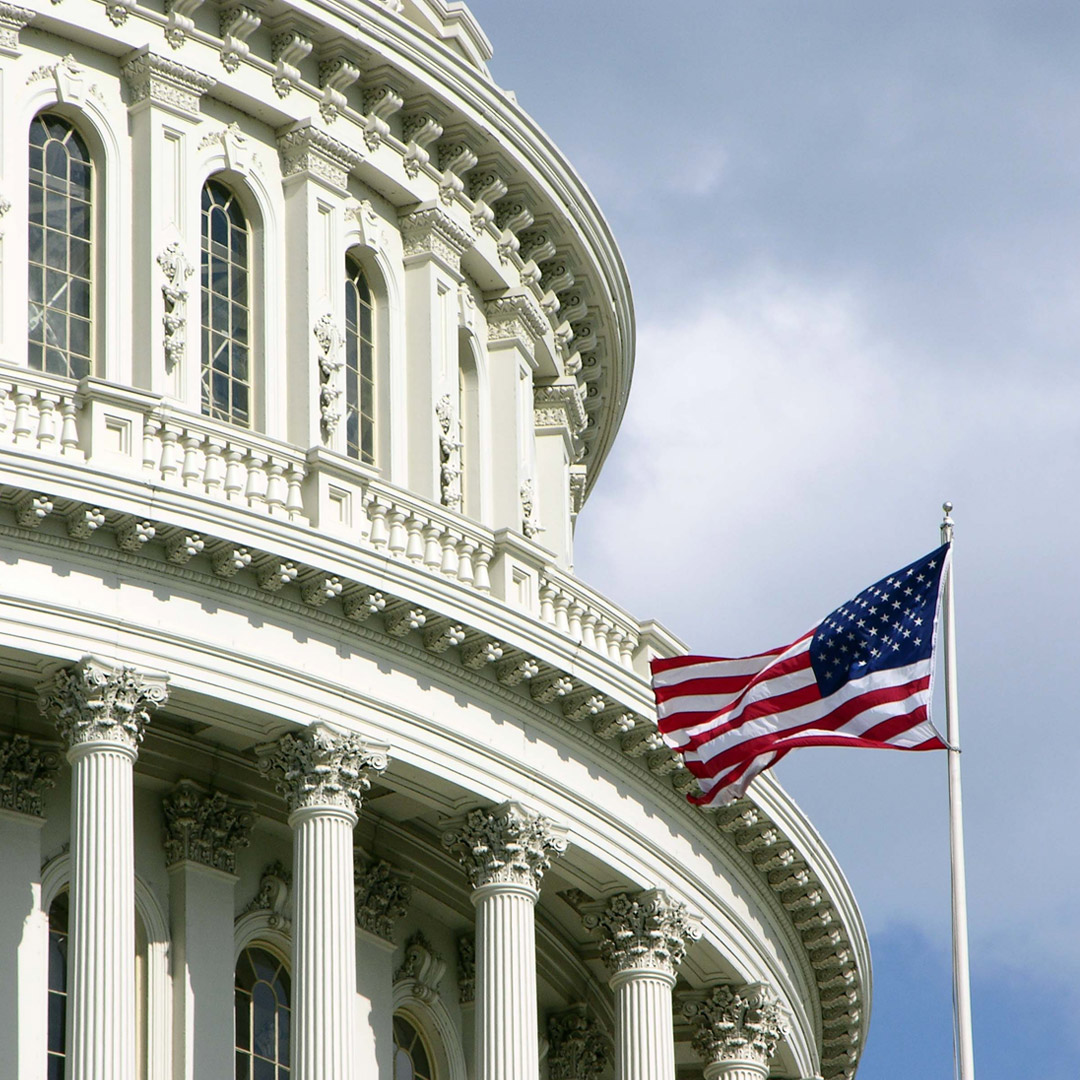
Federal Advocacy Action
An estimated 6.9 million people in America are living with Alzheimer’s disease. We advocate for research, caregiver support, and access to affordable quality health care. Alzheimer’s Los Angeles is a proud member of the Leaders Engaged on Alzheimer’s Disease (LEAD) Coalition and UsAgainstAlzheimer’s.
Protecting Medicaid

Nearly 80 million people, including over 7 million seniors, rely on Medicaid for health and long-term care. Without Medicaid, most older adults who need help with daily activities would not be able to afford home-based or nursing facility care. Medicaid helps millions of older adults pay their Medicare cost-sharing and covers vital benefits that Medicare does not, such as dental, vision, hearing, and non-emergency medical transportation. Many paid and unpaid caregivers for older adults also rely on Medicaid for their own health coverage.
Nearly 25% of people living in the United States with Alzheimer’s or another dementia receive care through the Medicaid program. The Alzheimer’s Association estimates that care cost of dementia will reach an estimated $360 billion in 2024. Of that amount, Medicare and Medicaid will account for $231 billion, or 64% of the total healthcare and long-term care payments, while out-of-pocket spending is expected to be $91 billion. Average annual Medicaid spending for an older American with dementia is $6,771, while the cost for a senior without dementia is only $3051.
Medicaid provides services not covered by Medicare including:
- Long-term care in nursing homes
- Assisted living
- Home and community-based services including:
- Personal care
- Homemaker supports
- Respite for family caregivers
- Adult Day Services
- Medication management
- Dental
- Vision
- Hearing care
- Non-emergency medical and non-medical transportation
Read the LEAD Coalition’s Issue Brief on Medicaid to learn more.
Despite the importance of Medicaid, leaders in Washington, DC are working to undermine and defund the program. These threats include:
- Caps or cuts to federal Medicaid funding to states such as block grants or per capita caps
- Limiting the number of eligible individuals who enroll in Medicaid including work requirements
In California, Medicaid covers 27% of the state’s population. The federal government pays 50% of the cost of traditional Medicaid, and 90% of the cost of Medicaid expansion2. Any cuts to funding would devastate the Medicaid program, known as Medi-Cal in California.
Medicaid is often the last safety net in ensuring that people with Alzheimer’s and other dementias have access to healthcare.
1 Alzheimer’s Association. 2024 Alzheimer’s Disease Facts and Figures. Alzheimer's & Dementia 2024;20(5).
2 https://www.kff.org/interactive/medicaid-state-fact-sheets/
Help protect Medicaid by sending a message to your Member of Congress:

Funding Alzheimer's Research
We are advocating for increased funding for Alzheimer’s research and programs in the federal Fiscal Year (FY) 2025 appropriations bills. Learn more about our priorities.
The FY 2024 budget included several investments and increases in funding for programs related to Alzheimer’s including a $100 million annual increase in funding for research at the NIH. Read more.
